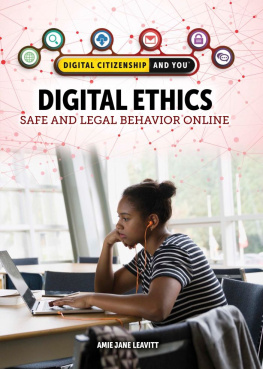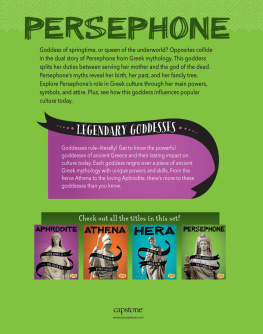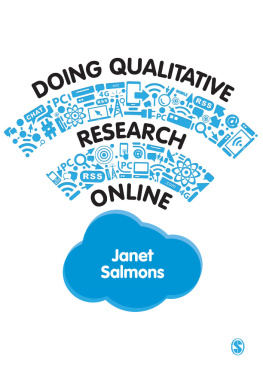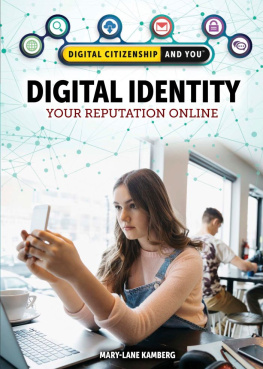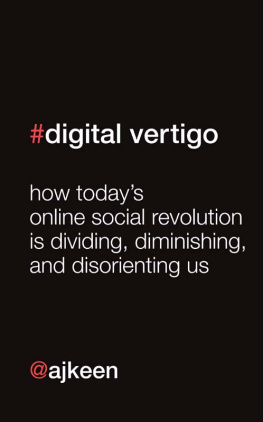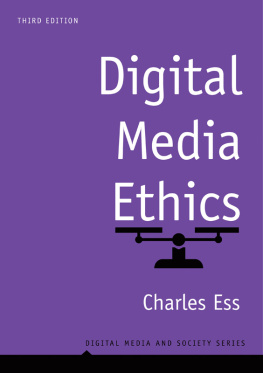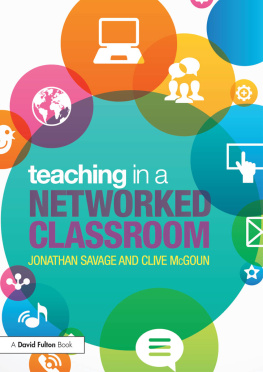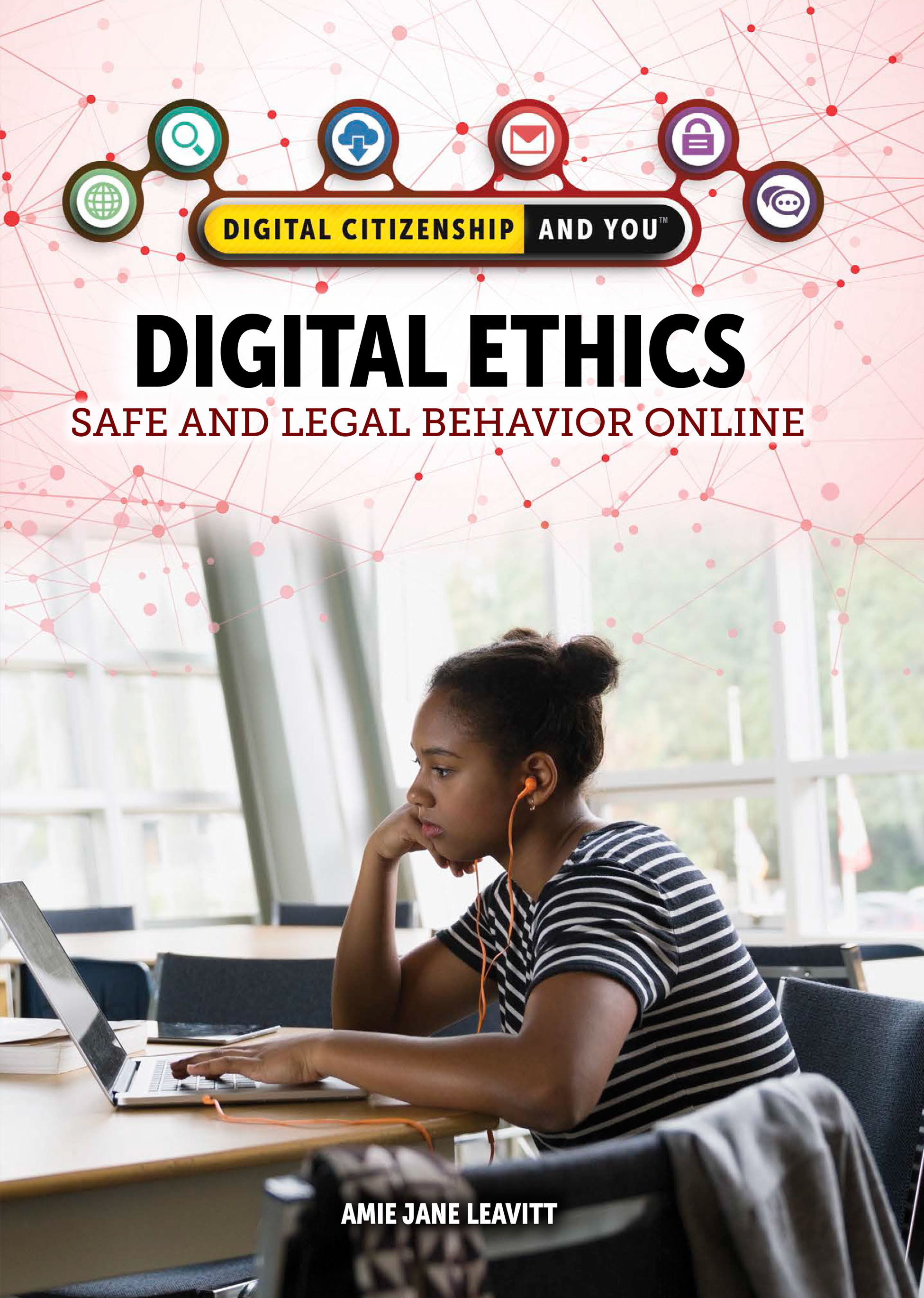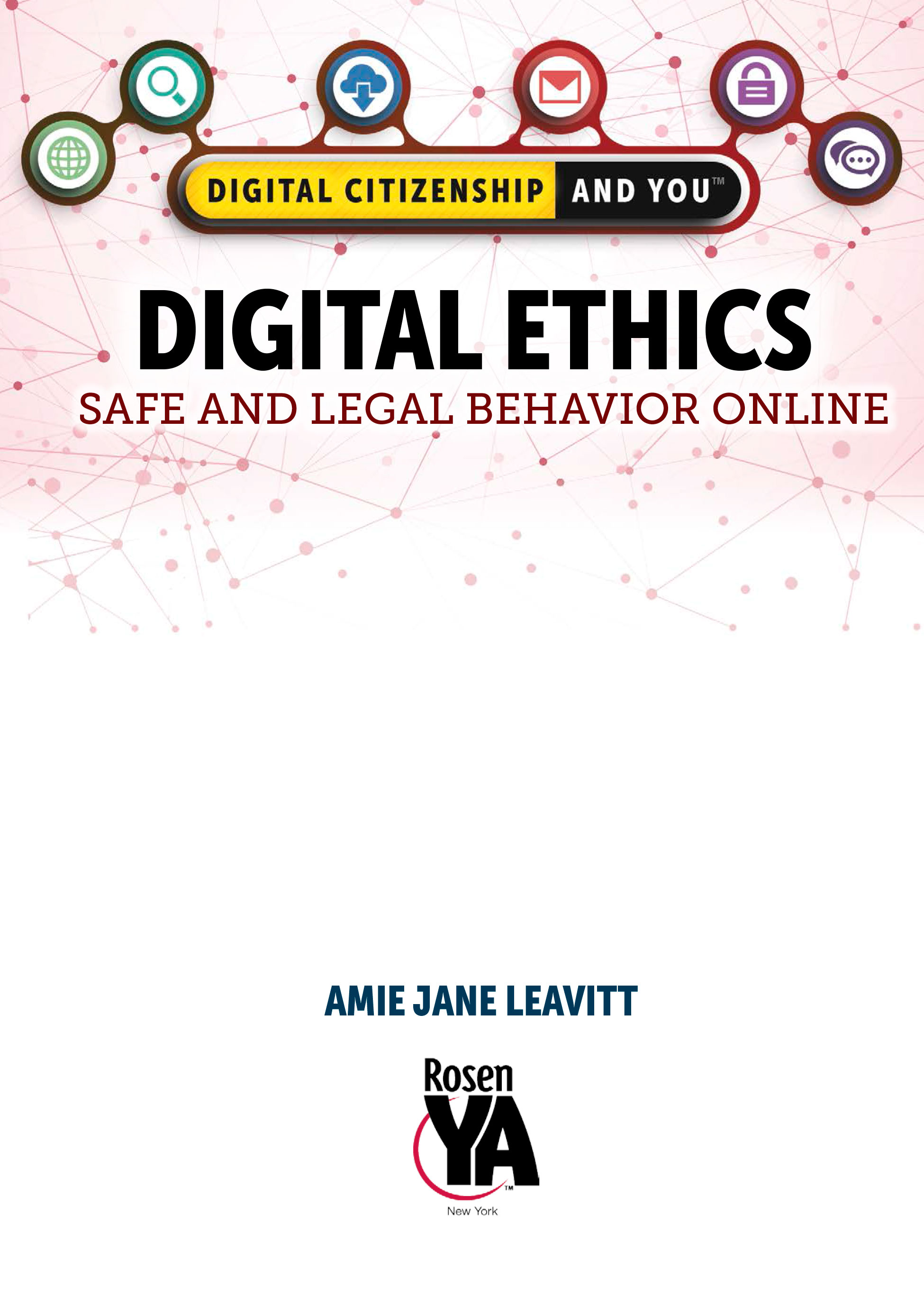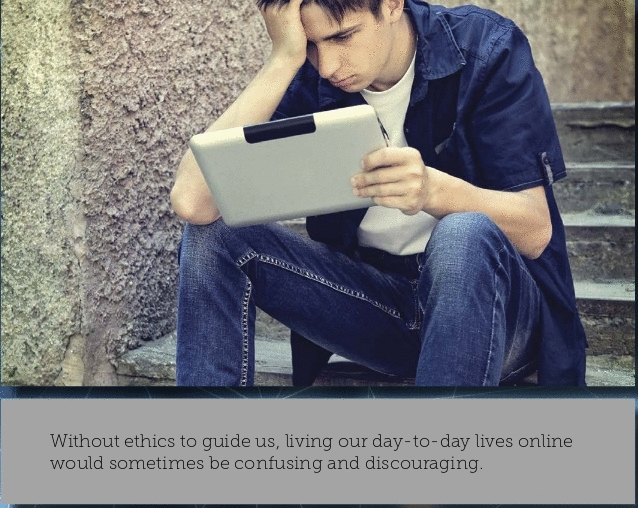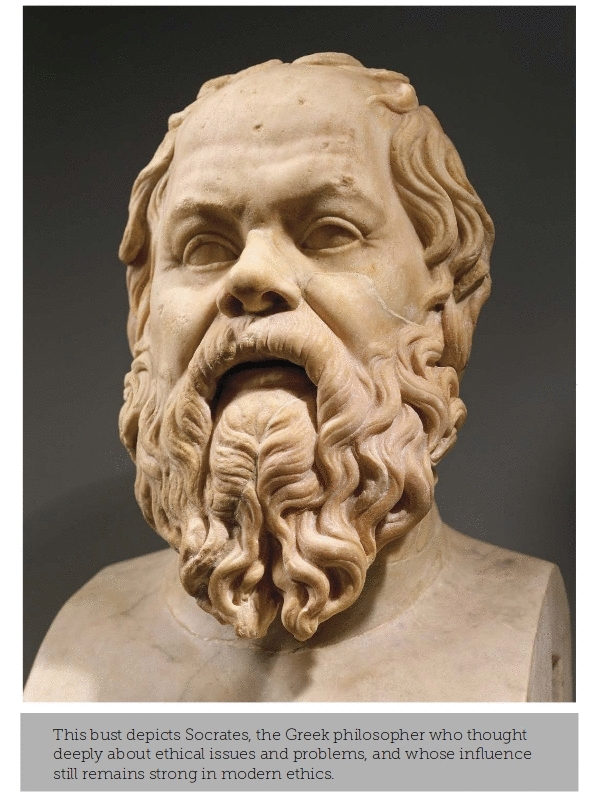Published in 2019 by The Rosen Publishing Group, Inc.
29 East 21st Street, New York, NY 10010
Copyright 2019 by The Rosen Publishing Group, Inc.
First Edition
All rights reserved. No part of this book may be reproduced in any form without permission in writing from the publisher, except by a reviewer.
Library of Congress Cataloging-in-Publication Data
Names: Leavitt, Amie Jane, author.
Title: Digital ethics : safe and legal behavior online / Amie Jane Leavitt.
Description: New York : Rosen Publishing, 2019 | Series: Digital citizenship and you | Audience: Grades 7-12. | Includes bibliographical references and index.
Identifiers: LCCN 2018021591| ISBN 9781508184577 (library bound) | ISBN 9781508184560 (pbk.)
Subjects: LCSH: InternetMoral and ethical aspectsJuvenile literature. | InternetSocial aspectsJuvenile literature. | Internet usersPsychologyJuvenile literature.
Classification: LCC HM851 .L43 2019 | DDC 302.23/1dc23 LC record available at https://lccn.loc.gov/2018021591
Manufactured in the United States of America
CONTENTS
CHAPTER ONE
OUR MORAL COMPASS
CHAPTER TWO
DO NO HARM
CHAPTER THREE
PROTECTING YOURSELF ONLINE
CHAPTER FOUR
DIGITAL ETHICS AND THE LAW
CHAPTER FIVE
DIGITAL ETHICS AND YOUACTIVITIES
INTRODUCTION
I magine you just got home. Its been a long day of school and extracurriculars, and all you feel like doing is decompressing in your room by going online. You pull out a phone, tablet, or laptop and start scrolling through your feeds. Perhaps you click the Like button on a few of the posts: one shows a friend on vacation with her family and another shows a relative eating a delicious-looking meal at a restaurant.
If you keep on scrolling, imagine coming across a negative post, perhaps making fun of someone for how that person looks or who he or she is. How do you react? Do you give it a Like and move on? Or maybe you chime in with a sarcastic, witty remark? Maybe you challenge the poster by sending that person a direct message, telling him or her to step back. There are many routes to take. Its not always easy to know what to do in situations like these. The online world is a vast and impressive space, full of many interconnected, online communities. We must tread lightly, though, because there are real people behind the posts and photos we see and comment on.
Scenarios like this occur online daily. People encounter things on the internet, including on social media, with which they dont feel comfortable. However, instead of doing something about it, like standing up for a person being targeted and speaking out on that persons behalf, many people do nothing. Or, even worse, they sometimes pile on to or otherwise contribute to online harassment, intimidation, and other abuse.
One thing people draw upon when deciding how to interact with others is their own personal set of ethics. So, what exactly are ethics? And how can they be applied to the decisions that we make? In this book, we will explore these questions and issues.
Before exploring the ins and outs of interacting ethically with others online, we must ask ourselves what it means to be part of the online community. As in real life, the things we do online are part of who we are. Citizens in the real world vote, work, go to school, and otherwise enter situations that may challenge their ethical perspectives.
Whether one is learning, participating in social media, or making money, good digital citizenship tends to make things smoother and easier on the internet. The internet is a great tool that empowers learning and problem solving. It also allows us to build communities, both locally and globally, with whom we can establish connections via hobbies, games, socializing, art, commerce, and other forms of engagement and collaboration. Beefing up on what digital ethics entail can only help digital denizens be better digital citizenswhether they are digital natives who have grown up online, or relative newcomers online.
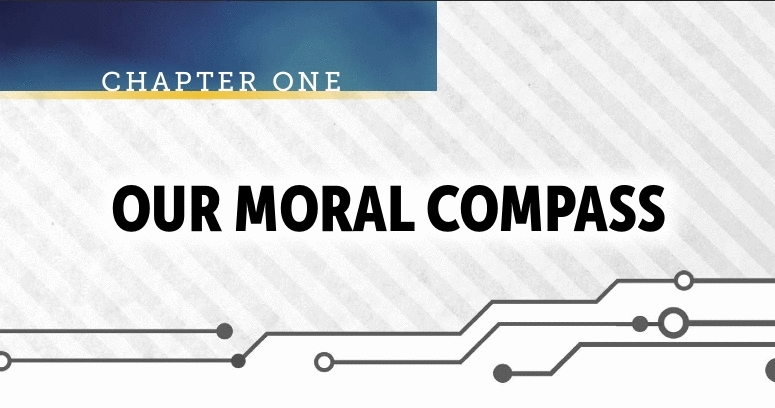
T he word ethics originates from the Greek word ethos which means custom, habit, character, or disposition. Systems of ethics help us define the concepts of right and wrong. A system of ethics serves as a persons moral compass. Living according to one can provide standards of behavior and help a person figure out questions of conscience. There are many cases where ethics allow us to weigh different options on how to act, and in doing so they encourage us to live better lives and to respect others and ourselves.
Ethics help human beings answer fundamental questions. Asking ethical questions can provide a moral map for our lives and help us navigate important decisions when they arise. They examine our obligations to ourselves and others. They also allow us to determine who we are and our character.
What are my principles?
What are my values?
What do I stand for?
What can I do versus what should I do?
To behave ethically means to treat others with respect and avoid harming others. It means not lying, cheating, or stealing. For some, it goes hand in hand with treating others how you would like to be treated.
IN EVERY FIELD
Ethics doesnt just deal with individuals. It also determines the behavior, conduct, and actions of organizations, companies, and governments. There are ethical standards and systems in every field today, including business, law, the military, health care, scientific and medical research, character education, the environment, government, journalism, leadership, religion, sports, technology, engineering, and so forth.
For example, business ethics deal with proper behavior in the workplace and proper actions by a company. Should employees disclose conflicts of interest to their employer? How should employees behave while on the job? How should a company do business? What kinds of products should they make? How should a company treat its employees? How should a company acquire raw materials for products? These are just some of the questions that might arise.
Scientific research is another field with its own ethical considerations, especially when human and animal subjects are concerned. The ethics of biomedical research include the answers to such questions as: Should a doctor be allowed to do a study on a patient without that persons consent? What should be done with genetic information? Should a company be allowed to test products on animals to make sure they are safe for humans?
As you may have noticed, ethical questions often deal with things one should do, rather those that they can, or are allowed, to do. Thats because technically a person or organization can do many things and can choose among any number of courses of action. However, when the question is changed to should, the topic is now looked at ethically and people are permitting the needle of a moral compass to determine their course of action.

